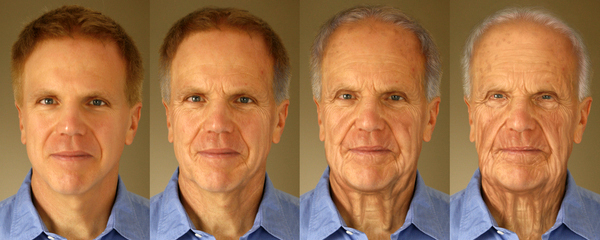
It was pretty much inevitable that Mark Wexler would make the documentary “How To Live Forever,” which just had its world premiere at the Hamptons International Film Festival.
His previous film, “Tell Them Who You Are,” was about his rocky relationship with his father, the cinematographer Haskell Wexler, now 87. While he was working on that movie, his mother, an artist, fell victim to Alzheimer’s disease and died, and one result is that Mr. Wexler, at 53, began to think more seriously about his own mortality.
But what if he could find a way to live forever?
In his new documentary, Mr. Wexler plays the amiable host of what is essentially a travelogue as he goes in search of the secret to longer life. He visits with several women who are among the oldest humans on Earth. He goes to Okinawa to interview residents there who are still active and productive in their 90s. Another trip takes him to Iceland, where a significant portion of the population is elderly.
And, perhaps to be on the safe side, he journeys to Arizona to check out the cold storage at a cryonics plant, where the bodies of Ted Williams and others are kept frozen until cures for whatever killed them are found.
As he wryly observed in an interview during the festival, “Over a hundred thousand dollars is a lot to spend on something that has no guarantees. But I guess if you have it, why not?”
Mr. Wexler also spends time with the apparently indestructible Jack LaLanne, who is in his 90s and still exercises strenuously for two hours a day. Another celebrity is Suzanne Somers, who advocates hormone replacement as the key to living longer. An especially enjoyable segment is Mr. Wexler’s encounter with laughter yoga instructors, and another takes place in England with “Buster,” a 97-year-old man who works as a van washer for a plumbing company and who spends some of his down time between running marathons draining pints of beer and smoking cigarettes.
“Buster is a particularly good example that happiness is one of the keys to longevity,” said Mr. Wexler. “Your attitude has an enormous impact on your health. He’s very happy with his pints and smokes ... not that I’m recommending that course of action.”
While he is seriously looking for answers, Mr. Wexler’s documentary is a lighthearted and amusing quest. For him, it was a sort of antidote to his mother’s death and trying to work through some of his and his father’s issues in his last film.
Haskell Wexler had started out as a TV cameraman on such fare as “The Adventures of Ozzie and Harriet,” and then went on to features, winning two Academy Awards. Among the films he shot were “Who’s Afraid of Virginia Woolf?”; “Bound For Glory”; “Days of Heaven”; “In the Heat of the Night” and “American Graffiti,” and he directed and shot “Medium Cool.”
Not surprisingly, Mark Wexler became a photographer. His work has appeared in Time, Life, National Geographic, Smithsonian, and The New York Times as well as in several books, and he has exhibited at the International Center of Photography. As a director, he has now completed five documentaries. It was while he was on an assignment for Life magazine that “How To Live Forever” was born.
“I was working on a photo project involving a teenager with the illness of rapid aging,” Mr. Wexler recalled. “Over two years I saw him age from a middle-age man to an old man before he was 18 years old. I thought of exploring the opposite—efforts and factors that could slow the aging process down to a crawl, and what the future holds for slowing it even further. This idea was brewing inside me for some time, but then my mother’s situation did serve as a catalyst to get me going on it.”
He assembled a crew and racked up frequent flyer miles as they circled the globe, and it really did feel like a personal quest. “My previous films examined the mysteries of identity, love, and family,” Mr. Wexler said. “Making this film allowed me to connect those lessons to the ultimate question of what makes a life truly meaningful.”
Ultimately, what is the answer to living a longer life? The filmmaker shared one of the things he learned while working on the documentary: “It used to be they thought longevity was two-thirds genetics and one-third lifestyle. Now we’re finding it is the other way around.”
And a big part of the lifestyle part of the equation could be summed up by “Make ’Em Laugh” sung by Donald O’Connor in “Singin’ In the Rain.”
“I hope people come away from the film with an understanding that you have to enjoy yourself in addition to whatever healthy things you do,” Mr. Wexler said. “Enjoy that occasional chili dog. Don’t cut down so much on things that you reach a point that the worries over what you eat and do will be what makes you sick. You know, when I interviewed the oldest people in the world, the one trait they all had was optimism.”
Mr. Wexler is now trying to retain some optimism for himself. He is hoping that the strong reception for “How To Live Forever” at the Hamptons International Film Festival will give his documentary a longer life beyond the festival circuit.
“As a filmmaker, you always want your film to go into theaters, but that is very tough for documentaries these days,” he said. “It could still happen, but the better expectation is to get it on one of the cable TV networks. And really, that is the best way for a documentary now to reach the most people.”